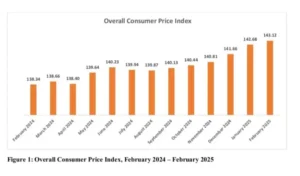In the ever-changing landscape of financial markets, investors are constantly seeking ways to navigate the uncertainties that come with economic volatility.
A key strategy that has proven its worth over time is the construction of a diversified portfolio. Within this framework, the inclusion of bonds and money market funds plays a pivotal role in enhancing stability and managing risk.
Bonds are debt securities that represent loans made by investors to entities, such as governments, or corporations. When an investor buys a bond, they are essentially lending money to the issuer in exchange for periodic interest payments and the return of the principal amount at maturity.
They are often considered as a crucial component of a diversified investment portfolio due to their potential to provide income, capital preservation, and stability. They can act as a hedge to more volatile assets like stocks, offering a degree of risk mitigation.
Some key strategies in bond investing are:
- Duration Management: Adjusting the average duration of a bond portfolio based on interest rate expectations. For example, it’s more prudent to invest in short-term bonds during periods of high interest rates.
- Credit Quality Selection: Choosing bonds with varying credit ratings based on risk tolerance.
- Diversification: Spreading investments across different types of bonds to reduce specific risk. For example, investing in both government and corporate bonds.
Money market funds on the other hand are collective investment schemes that invest in short-term, high-quality debt securities such as treasury bills, certificates of deposit, and commercial paper. They aim to provide liquidity and stability while generating a modest level of income. They are often valuable for their liquidity, low risk, stability, and source of funds for short-term needs.
Given the prevailing economic conditions of rising interest rates and high inflation, certain strategies may be more relevant when investing in bonds and money market funds:
For bonds consider:
- Interest Rate Sensitivity: Given the potential for rising interest rates, a focus on managing interest rate sensitivity, perhaps by incorporating shorter-duration bonds, may be prudent.
- Credit Quality: Given economic uncertainties, maintaining a balance between risk and return by emphasizing high-quality bonds could be sensible. Government bonds are usually considered risk-free and might be a safe option.
For Money Market Funds consider:
- Liquidity: In uncertain times, the emphasis on liquidity becomes more critical. Money market funds can serve as a temporary parking place for cash while maintaining liquidity.
Overall given the dynamic economic environment, maintaining flexibility in bond and money market fund strategies is crucial. Regularly reassessing and adjusting the portfolio in response to changing economic conditions is a prudent approach.
As the economic climate evolves, investors need to stay informed and work closely with their wealth advisor to tailor their bond and money market fund strategies to align with their financial goals, risk tolerance, and the prevailing market conditions.




